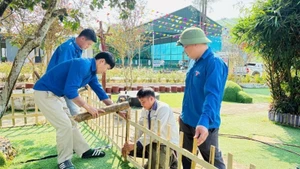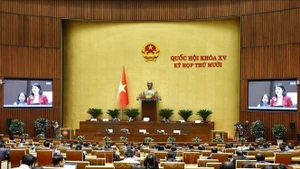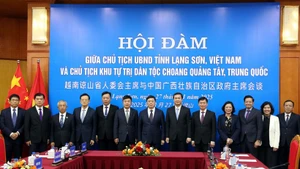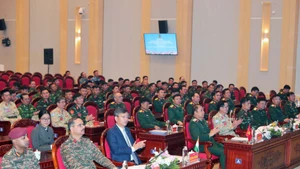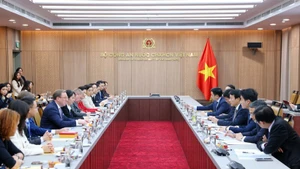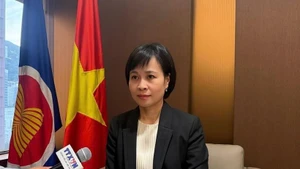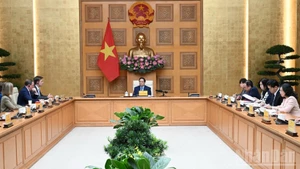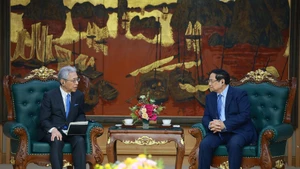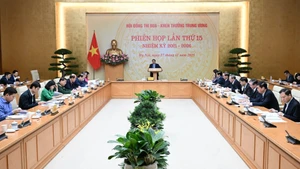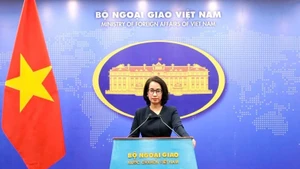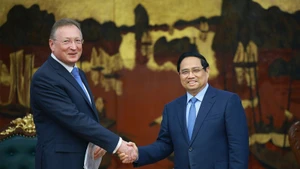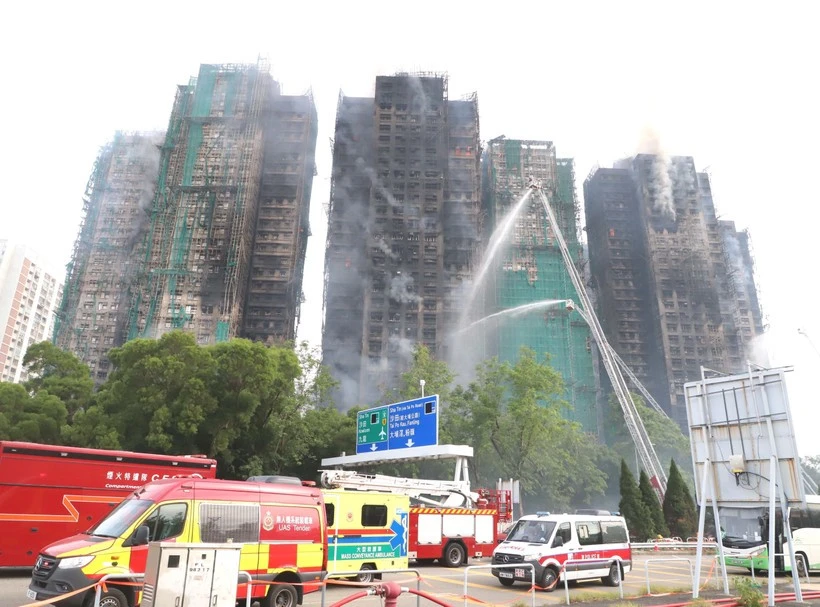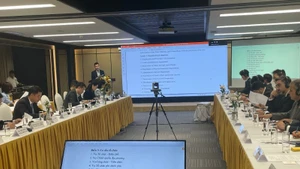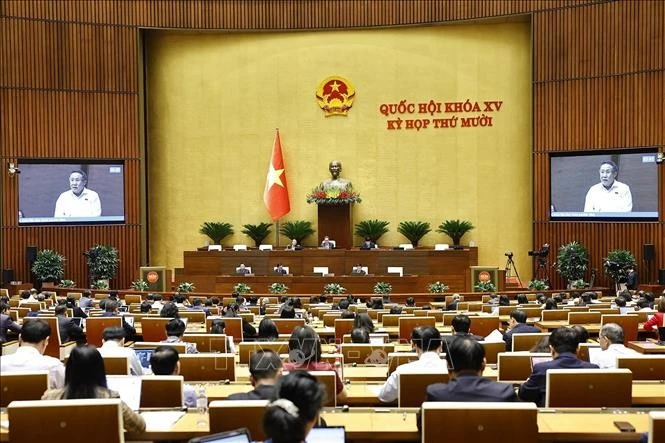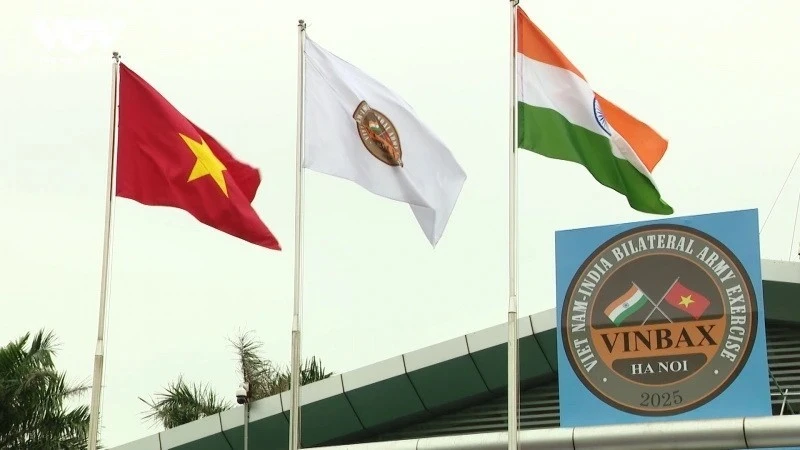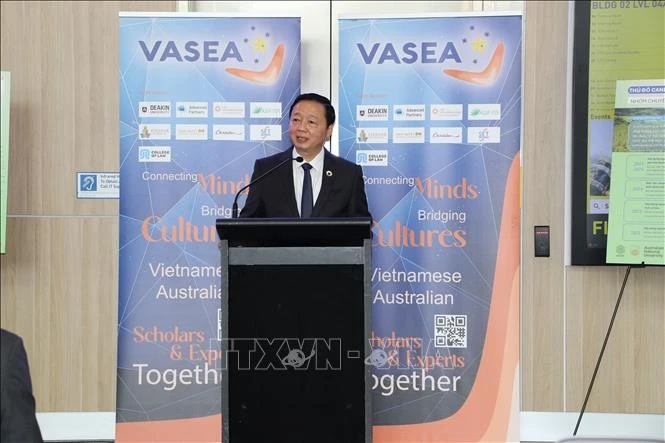Vu said Sultan Hassanal Bolkiah’s state visit, spanning from November 30 to December 2 at the invitation of State President Luong Cuong, reaffirms the commitment of both sides to strengthening their Comprehensive Partnership, which was established in 2019.
During the visit, the two countries will review progress under the 2023–2027 Plan of Action to implement the Comprehensive Partnership adopted during Prime Minister Pham Minh Chinh’s official visit to Brunei in February 2023, and discuss measures to deepen cooperation in priority fields such as politics - diplomacy, defence - security, energy, the Halal industry, tourism and people-to-people exchanges, along with areas of shared interest.
According to the ambassador, for Viet Nam, welcoming the Sultan underscores the country’s consistent policy of treasuring relations with ASEAN members and facilitating all-round ties with Brunei, contributing to regional peace, stability and development.
Reviewing achievements in the bilateral ties since the establishment of the Comprehensive Partnership, Vu said the relations have advanced across all fields. Political and diplomatic exchanges have grown through regular high-level visits and consultations. The Joint Committee for Bilateral Cooperation, co-chaired by the two foreign ministers, has continued to play a key role in monitoring and promoting substantive cooperation.
Economic ties have recorded encouraging progress, with two-way trade in the 2023–2025 period surpassing the 500-million-USD target, hitting over 670 million USD in 2024, laying the basis for higher goals in the coming years.
Viet Nam’s exports to Brunei have grown strongly, rising more than 30% in the first 10 months of this year. Cooperation has expanded in energy, the Halal sector and tourism, while Vietnamese businesses in Brunei, especially those in cuisine and handicrafts, have been developing steadily. Both sides are also working to establish new frameworks for collaboration in Halal production and fisheries, the ambassador noted.
He said that bilateral defence and security cooperation has also seen practical progress through the implementation of memoranda of understanding and active delegation exchanges. In 2025, the Commander of the Royal Brunei Armed Forces visited Viet Nam, further enhancing defence dialogue mechanisms.
People-to-people exchanges and education cooperation has remained important pillars, with the Vietnamese community in Brunei serving as a key bridge. Vietnamese is currently the only Southeast Asian language taught at the University of Brunei Darussalam, attracting increasing interest.
Regarding new potential areas for cooperation, the ambassador highlighted considerable room for expanding economic collaboration, especially as both countries have attached importance to diversifying partnerships and tapping new growth drivers. He said Viet Nam and Brunei have strong potential in renewable energy transition, green and circular economy, and shared their commitment to achieving net-zero emissions by 2050. Cooperation could also grow in carbon capture and storage (CCS), an area where Brunei had notable strengths.
Digital economy, science-technology and innovation are also promising fields. Brunei’s efforts to advance “Brunei Vision 2035” offered opportunities for Vietnamese digital firms to engage in telecommunications infrastructure, e-government, digital payments and emerging technologies. Other promising sectors include start-up ecosystem connectivity, high-tech agriculture, eco-tourism and high-quality human resources training.
Looking ahead, Vu said the bilateral ties will continue to expand based on existing cooperation frameworks, strong political will from leaders of both countries and active participation of agencies, organisations and businesses.
At multilateral forums, including ASEAN, the United Nations, Viet Nam and Brunei will maintain close coordination to contribute to regional and global peace and development. He noted that Viet Nam’s hosting of APEC Year 2027 and its election to the UN Human Rights Council for the 2026–2028 term, along with Brunei’s role as coordinator of ASEAN–EU relations, will create further momentum for more effective cooperation in multilateral platforms.

